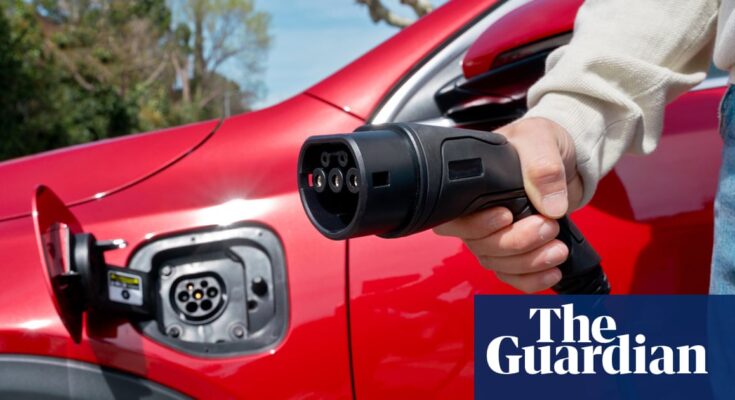Ofgem is pushing ahead with plans to make it easier for UK homeowners to take advantage of off-peak electric car chargers and heat pumps as the grid becomes more reliant on wind and solar power.
Britain’s energy regulator has unveiled proposals to encourage flexible use of electricity at home by creating a single register where flexibility service providers (FSPs) can access more markets and better rates for owners of energy assets such as EV chargers and battery storage. systems.
The move is part of a push to shift consumers and businesses to more flexible energy use as demand rises and the grid becomes more reliant on low-carbon, intermittent energy sources such as wind turbines.
Under the current system, FSPs, which aggregate flexible energy assets on behalf of customers, have to sign up multiple times to access different local and national flexibility markets across the country, meaning customers often miss out on the best fees.
The new simplified system will include a “one-stop sign-up point” which would give FSPs access to all flexibility markets, meaning customers are more likely to benefit from lower rates at times when demand is low or supply is high. .
Ofgem said the current complex system was a barrier to market access for millions of small-scale energy assets, and was preventing consumers from getting maximum value from their equipment.
The need to use electricity more flexibly comes as domestic energy use is expected to increase by 50% by 2035 as uptake of EVs and heat pumps increases, while more energy production comes from more intermittent energy sources, such as wind and solar. the United Kingdom is trying to achieve net zero emissions.
The regulator said its bet should lead to a more flexible use of energy and could contribute to savings between £30bn to £70bn and lower bills for all consumers by reducing the need to build expensive infrastructure.
A number of energy providers and distribution networks have already started to provide flexible services to homeowners to avoid overloading the network at peak times.
They include Octopus Energy, whose electric rate Go manages the charging of 150,000 electric cars and provides lower rates for owners to charge in the quiet hours of the night.
after the newsletter promotion
National Grid has also run a series of demand flexibility days since January during which households and businesses were paid to reduce their electricity use during the peak period, usually between 4pm and 7pm.
Ofgem director Eleanor Warburton said: “We are already starting to see a real acceleration in the use of small-scale flexible energy as consumers increasingly access cheaper energy through a more flexible consumption… Asset registration will create a simplified single point of registration, which will help maximize consumer participation.”
The regulator also announced on Monday that it had appointed Elexon as its new market facilitator to develop local flexibility markets. The facilitator, which should be fully operational by early 2026, will act as an independent expert to help guide the alignment between national and local distribution networks.



